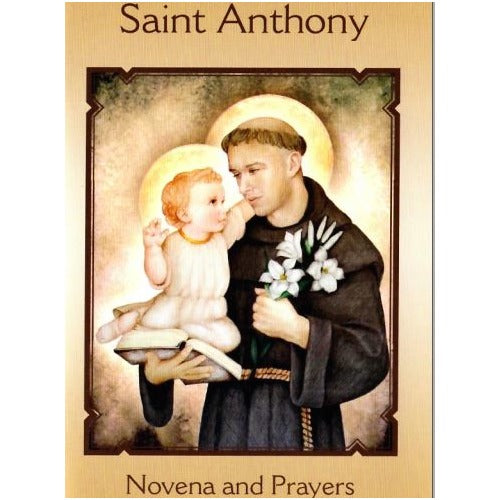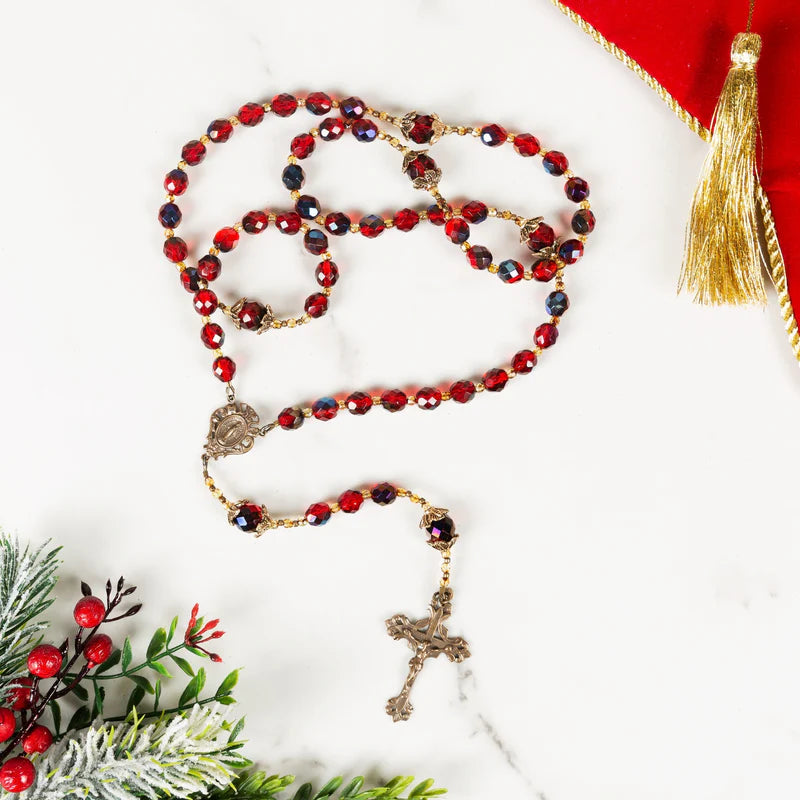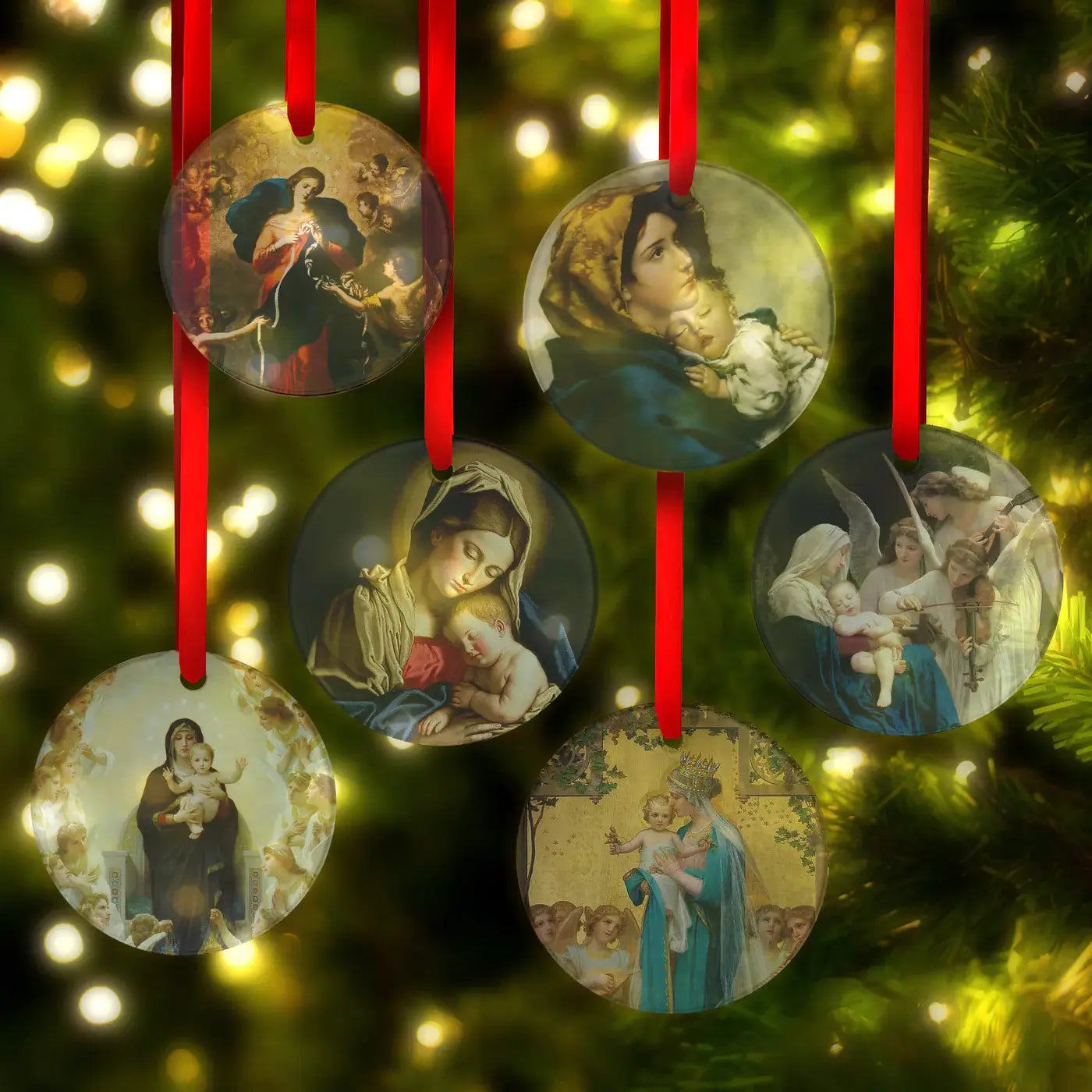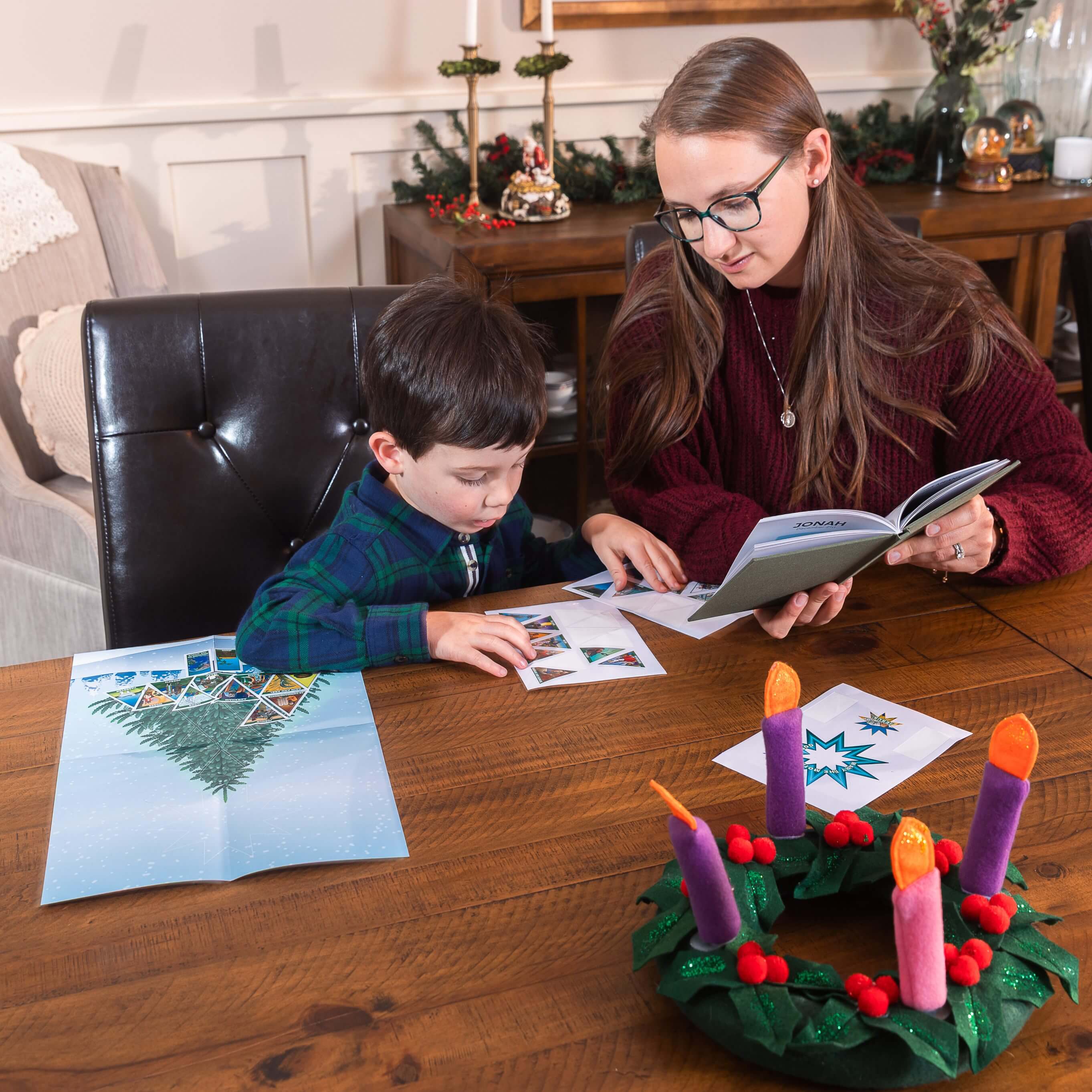
Saint Anthony Novena and Prayers
The "Saint Anthony Novena and Prayers" booklet is a beautiful collection of prayers and devotions to St. Anthony, a beloved saint known for his miraculous healings and compassionate care for the needy. It includes morning and evening prayers, novenas, and a litany in his honor. This 48-page softcover by Mary Mark Wickenhiser, FSP, is perfect for gift-giving and deepening one's faith journey.
See our holiday shipping deadlines.
Guarantee
Shipping
Returns
Guarantee
Description
Description
- Saint Anthony Novena and Prayers
- Novena and prayers to a beloved saint
- A beautiful collection
- Perfect for gift-giving
Almost 800 years after his death, Anthony remains a very popular saint. Born in Lisbon, Portugal, in 1195, Anthony was a Franciscan friar, a preacher, missionary, the first Franciscan teacher of theology, provincial, and healer known for his miraculous healings. He died at 36 years of age. Although he is popularly known as the finder of lost objects, Anthony's concern is not so much for finding lost things as for finding those who have lost their path to God. His love and care for the needy gave rise to the Franciscan tradition of St. Anthony's bread. He stressed that everyone is called to holiness, anticipating the teaching of Vatican II. St. Anthony is invoked as the patron of those seeking the light of faith, travelers and sailors, those seeking lost objects, and the poor.
The booklet includes morning and evening prayers, the devotion of the Thirteen Tuesdays in Honor of St. Anthony, Prayer for Guidance and Protection, Prayer to Recover Something Lost, Prayer for One Who Has Lost Faith, Litany in Honor of St. Anthony, and more.
The tradition of praying novenas has its roots in the earliest days of the Church. Christians have always prayed for various needs, trusting that God both hears and answers prayer. The word "novena" derives from the Latin term novem, meaning nine. In a novena we pray a prayer for nine days. "But," we might wonder, "doesn't God know our needs before we event ask? Isn't praying once for something enough?" Although we believe in God's love for us, something we need to remind ourselves of this. Although we know we are held in God's hands and that God will not let go, sometimes we need reassurance. What may appear to be mere repetition in a novena is really a continual act of faith and hope in our loving God.
Just as we pray for each other while here on earth, those who have gone before us and are united with God in heaven can pray for us and intercede for us as well. We use the term "communion of saints" to refer to this exchange of spiritual help among the members of the Church on earth, those who have died and are being purified, and the saints in heaven. Devotion to the saints can help us witness to our faith and encourage us in our commitment to lead lives of holiness and service as they did.
SKU: 1003507
Specifications
Specifications
- Author: Mary Mark Wickenhiser, FSP
- Format: Softcover
- Pages: 48
Guarantee
Guarantee
Satisfaction Guaranteed
The Catholic Company is committed to your complete satisfaction. For over 27 years, we have proudly served our customers by offering meaningful, high-quality Catholic products that inspire and support your faith journey.
Our Promise to You:
- We stand behind every product we sell with a commitment to your happiness. If you are not satisfied, we’ll work with you to make it right.
- 30-Day Return Policy: Most items can be returned within 30 days of purchase. Simply reach out to our dedicated customer service team to initiate your return.
- Guardian Angel Protection: Choose this optional coverage at checkout, and if your item is lost, damaged, or stolen, we’ve got you covered.
Your satisfaction and trust are important to us. Contact us by email, phone, or live chat for assistance with any order, and rest assured—we’re here to help. Thank you for choosing The Catholic Company to be part of your faith journey.
Questions?
For more details on returns, exchanges, or to start a return, our friendly customer service team is ready to assist.





















